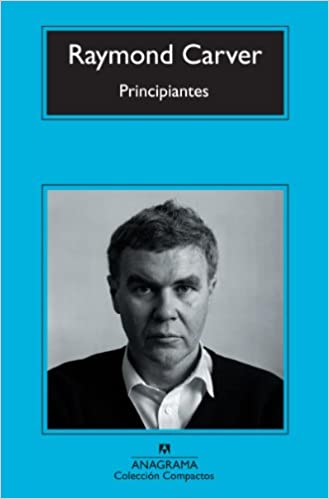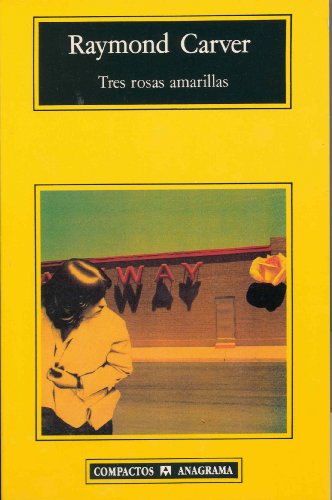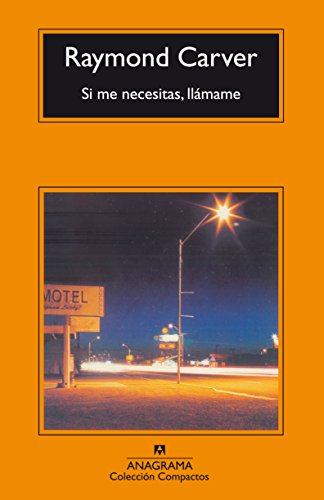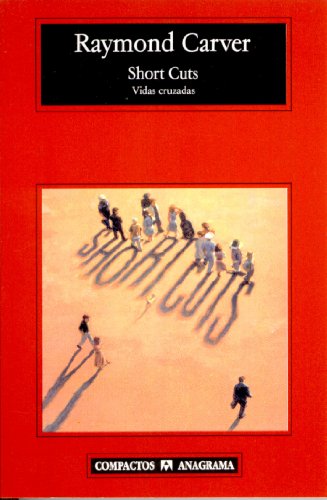While Bukowski firmly hoists the banner of the most soulless writers, in the intentionally pathetic parade of dirty realism, other authors such as Raymond Carver, Richard Ford o Peter John Gutierrez they continued and enhanced that type of suggestive narrative to the visceral. A type of narrative stripped of artifice to focus the reader on the characters, moved at the complete whim of a reading mind that recreates minimalist settings, filling them with a psychedelic color at times.
Raymond Carver He was the one who best adjusted that sieve of narrative straw to find in the story (and also in poetry) the perfect setting through which to wander his characters of vital irrelevance that due to their rabid truth end up clinging to our skin with their slight stories from nowhere, an abyss that ultimately surrounds us all and in which only hedonism and a nihilistic point can compose the necessary philosophy towards survival.
And yet, among all the plethora of characters that occupy the brief scenes of his ruthless stories, we also discover why we get there, to that edge of the abyss of spiritual and physical nothingness. Looking at all or nothing, we find how destruction threatens any vital construction of cards with its slight whimsical breath.
Carver's characters end up beating, fully opening up to their miseries, to its hasty ends, to its wear and tear and demotivation, to the dark happiness of resignation and the assumption of defeat.
It is about deciding which engine is the one that will initiate each new decision of the characters, whether the perennial fear or the irrepressible physical desire that awakens before each threat with powerful fierceness. Characters made philosophers of the everyday, mirrors where the modern human is perfectly reflected.
Top 3 Recommended Books by Raymond Carver
Beginners
The work formerly known as What do we talk about when we talk about love? it actually did go through a particular publisher's censorship back in 1981. Carver would probably not be in a position to discuss that cut from the short story volume.
The point is that many years later this book would arrive without the initial revision, and the fuller magnitude of a work would then be discovered that, if it had already been blessed at the time by the most irreverent readers, then further rounded that centripetal force around to a devastating melancholy.
A chain of daily stories are composing a mosaic with pieces of love in glass edges pressed by the hands, with sadnesses that sound like farewells and doom.
A narrative collage on a blank canvas, without descriptive recreations, where only shreds of skin stick together by alcohol, an alcohol that opens up to the crudest truth and appears on the lucid path out of nowhere.
Three yellow roses
Perhaps all that movement associated with dirty realism has its inspiration in Chekhov, perhaps the story of characters and settings full of stylistic and spiritual sobriety come from the Russian genius who somehow laid the foundations of the modern story, a kind of digression with the traditional tale to address more mundane aspects from the brief.
This is how the finishing touch of this volume of six stories could be understood, a closing that gives the title to the volume and that addresses a supposed end of Chekhov who, from that rebound of the patient that paradoxically leads him to his denouement, shoots towards a new end of his days, to the sound of an icy narrative symphony composed as an epitaph by his admirer Carver.
The remaining five stories delve into new cases of loneliness and disappointment, as characters who travel through the same Russian steppe in which Chekhov located his protagonists.
If you need me, call me
Geniuses are like that, you can always expect a new bewilderment, a new work that was buried by disinterest.
Perhaps considered by Carver as stories less, these five new tales of the everyday and the sober open up to that intimate and shocking space of the narrator who intends to leave their hells and who moves with the last blows between a literature that has been placebo and condemnation .
Stories about men who have already abandoned the strange glow of alcohol in the bottle and are trying to find themselves again. Except that the past paths cannot be started again, no matter how much you believe that there is always hope.
To be a loser is to be human. And in the general masquerade neither alcoholics nor abstainers are spared.
Other recommended Raymond Carver books…
short cuts
In 1990 Robert Altman read Carver's stories and it was clear to him that there was a movie there. To make it, the filmmaker «dialogued» with the writer, combined his texts, moved characters from one story to another and, in his own way, composed a kind of memorable filmed «great American novel». These are the stories that inspired the film.





2 comments on "3 best books by Raymond Carver"